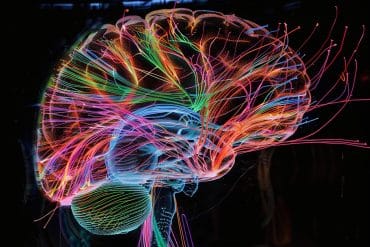Summary: According to researchers, people who consistently sleep for more than 9 hours a night have double the risk of developing dementia over a 10 year period than their peers who sleep for less time.
Source: Boston University Medical Center.
Data from the Framingham Heart Study has shown that people who consistently sleep more than nine hours each night had double the risk of developing dementia in 10 years as compared to participants who slept for 9 hours or less. The findings, which appear in the journal Neurology, also found those who slept longer had smaller brain volumes.
It is believed that the number of Americans with Alzheimer’s disease and other dementias will grow each year as the size and proportion of the U.S. population age 65 and older continues to increase. By 2025 the number of people age 65 and older with Alzheimer’s disease is estimated to reach 7.1 million.
A large group of adults enrolled in the Framingham Heart Study (FHS), were asked to indicate how long they typically slept each night. Participants were then observed for 10 years to determine who developed dementia, including dementia due to Alzheimer’s disease. Researchers from Boston University School of Medicine (BUSM) then analyzed the sleep duration data and examined the risk of developing dementia.
“Participants without a high school degree who sleep for more than 9 hours each night had six times the risk of developing dementia in 10 years as compared to participants who slept for less. These results suggest that being highly educated may protect against dementia in the presence of long sleep duration,” explained co-corresponding author Sudha Seshadri, MD, professor of neurology at BUSM and FHS senior investigator.
According to the researchers the results suggest that excessive sleep may be a symptom rather than a cause of the brain changes that occur with dementia. Therefore, interventions to restrict sleep duration are unlikely to reduce the risk of dementia.

“Self-reported sleep duration may be a useful clinical tool to help predict persons at risk of progressing to clinical dementia within 10 years. Persons reporting long sleep time may warrant assessment and monitoring for problems with thinking and memory,” added co-corresponding author Matthew Pase, PhD, fellow in the department of neurology at BUSM and investigator at the FHS.
The researchers believe screening for sleeping problems may aid in the early detection of cognitive impairment and dementia. The early diagnosis of dementia has many important benefits, such as providing a patient the opportunity to more activity direct their future plans and health care decisions.
Funding: Funding for this study was provided by the National Institute of Aging, the National Institute on Neurological Disorders and Stroke and the National Heart, Lung and Blood Institute.
Source: Gina DiGravio – Boston University Medical Center
Image Source: NeuroscienceNews.com image is in the public domain.
Original Research: Abstract for “Prolonged sleep duration as a marker of early neurodegeneration predicting incident dementia” by Andrew J. Westwood, Alexa Beiser, Nikita Jain, Jayandra J. Himali, Charles DeCarli, Sanford H. Auerbach, Matthew P. Pase, and Sudha Seshadri in Neurology. Published online February 22 2017 doi:10.1212/WNL.0000000000003732
[cbtabs][cbtab title=”MLA”]Boston University Medical Center “Prolonged Sleep May Predict Dementia Risk.” NeuroscienceNews. NeuroscienceNews, 23 February 2017.
<https://neurosciencenews.com/dementia-sleep-neurology-6143/>.[/cbtab][cbtab title=”APA”]Boston University Medical Center (2017, February 23). Prolonged Sleep May Predict Dementia Risk. NeuroscienceNew. Retrieved February 23, 2017 from https://neurosciencenews.com/dementia-sleep-neurology-6143/[/cbtab][cbtab title=”Chicago”]Boston University Medical Center “Prolonged Sleep May Predict Dementia Risk.” https://neurosciencenews.com/dementia-sleep-neurology-6143/ (accessed February 23, 2017).[/cbtab][/cbtabs]
Abstract
Prolonged sleep duration as a marker of early neurodegeneration predicting incident dementia
Objective: To evaluate the association between sleep duration and the risk of incident dementia and brain aging.
Methods: Self-reported total hours of sleep were examined in the Framingham Heart Study (n = 2,457, mean age 72 ± 6 years, 57% women) as a 3-level variable: <6 hours (short), 6–9 hours (reference), and >9 hours (long), and was related to the risk of incident dementia over 10 years, and cross-sectionally to total cerebral brain volume (TCBV) and cognitive performance.
Results: We observed 234 cases of all-cause dementia over 10 years of follow-up. In multivariable analyses, prolonged sleep duration was associated with an increased risk of incident dementia (hazard ratio [HR] 2.01; 95% confidence interval [CI] 1.24–3.26). These findings were driven by persons with baseline mild cognitive impairment (HR 2.83; 95% CI 1.06–7.55) and persons without a high school degree (HR 6.05; 95% CI 3.00–12.18). Transitioning to sleeping >9 hours over a mean period of 13 years before baseline was associated with an increased risk of all-cause dementia (HR 2.43; 95% CI 1.44–4.11) and clinical Alzheimer disease (HR 2.20; 95% CI 1.17–4.13). Relative to sleeping 6–9 hours, long sleep duration was also associated cross-sectionally with smaller TCBV (β ± SE, −1.08 ± 0.41 mean units of TCBV difference) and poorer executive function (β ± SE, −0.41 ± 0.13 SD units of Trail Making Test B minus A score difference).
Conclusions: Prolonged sleep duration may be a marker of early neurodegeneration and hence a useful clinical tool to identify those at a higher risk of progressing to clinical dementia within 10 years.
“Prolonged sleep duration as a marker of early neurodegeneration predicting incident dementia” by Andrew J. Westwood, Alexa Beiser, Nikita Jain, Jayandra J. Himali, Charles DeCarli, Sanford H. Auerbach, Matthew P. Pase, and Sudha Seshadri in Neurology. Published online February 22 2017 doi:10.1212/WNL.0000000000003732






